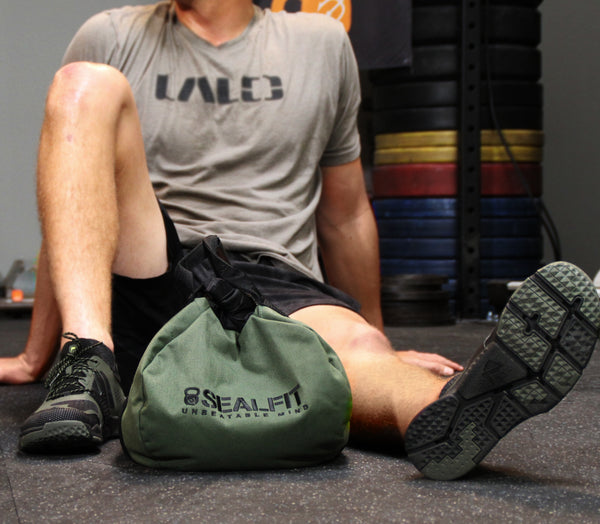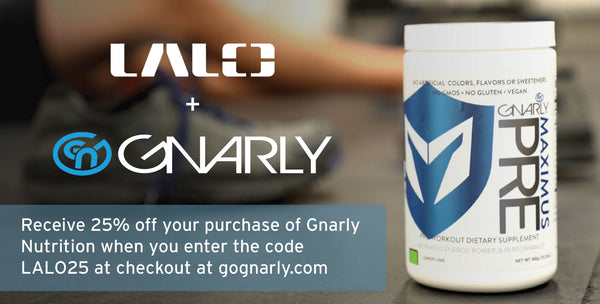Refuel, Rebuild, Recover
We all know that eating right and having the correct nutrition plan is key when it comes to recovering from a tough workout. After you've finished putting the wood to yourself, you'll want to refuel your body with nutrients. But what really helps your body recover while keeping in line with your health and workout goals? Our friends at Gnarly Nutrition put together the following tips to help learn more about keeping your machine running in top form.
Recovery Nutrition and Breaking Through Your Performance Plateau (courtesy of the fine folks at Gnarly Nutrition)
Recovery is arguably the most overlooked aspect of a training program, and yet it is often the key to building functional strength and breaking through performance plateaus. The quality of an athlete’s recovery or speed at which muscles recover from intense training can have a direct impact on an athlete’s ability to perform at subsequent efforts. Similarly, inadequate recovery can have long term negative impacts, linked to overtraining, that may result in a decline in performance and potentially injury. So what are the primary factors affecting the quality of recovery? Although a good recovery practice is multi-faceted, nutrition plays a key role and should be a priority for all athletes.
What is meant by recovery? For the purpose of this article we are defining recovery as the period of rest between successive training sessions. For most of us that do one-a-day workouts, this period is 24 hours. During those 24 hours, both the quality and quantity of nutrition can facilitate recovery and adaptation to training. For those training twice a day, this recovery period becomes significantly shorter and the importance of not just nutrition quality, but the timing of nutrition becomes paramount. In the following paragraphs we will talk about how fine tuning your recovery nutrition, through the use of branched chain amino acids (BCAAs) and protein, can help you recover more efficiently and ultimately help you perform better.
So first, a little bit about amino acids. Amino acids are the building blocks of protein. Of the 20 amino acids, 9 are essential, meaning they cannot be synthesized (produced or created) by the body and must come from our diet. Of these essential amino acids, leucine, isoleucine and valine are known as branched chain amino acids (BCAAs) Unlike other essential amino acids, which are broken down in the liver, BCAAs are transported directly to skeletal muscle where they play a critical role in muscle recovery and synthesis. Leucine, isoleucine and valine, the three BCAAs, work together to stimulate muscle protein synthesis and reduce the rate of muscle catabolism, or breakdown - exactly what we’re looking for to maximize recovery. Taking BCAAs before and during exercise decreases delayed onset muscle soreness or DOMS which has a direct impact on the ability to perform in subsequent training efforts.

Taking BCAAs seems like a good idea, but is it possible to get a good dose of BCAAs by simply eating a good source of protein?
Yes and no. Although protein contains BCAAs, different sources of protein contain varying amounts and complete proteins have to be fully digested in order to access free form amino acids, and this process takes time and is not efficient. Because free form, or individual, amino acids don’t require digestion and are absorbed directly into the bloodstream, they are a much quicker and more efficient way to increase BCAA concentration in the body directly before and during exercise. That being said, if you are diligent and consistent with your protein intake than BCAA supplementation may not be necessary. What does diligent and consistent protein intake mean? Research suggests that in a single sitting, 20-30g of protein maximally stimulates muscle protein synthesis and consuming this amount of protein every 3-4 hours will lead to higher levels of total muscle protein synthesis when measured across the course of a day (this is in contrast to skewed protein intake where an individual consumes the majority of their daily protein at one end of the day).
How can you put all of this together to optimize your recovery nutrition plan?
Having and executing a recovery nutrition plan will increase your ability to recover and benefit from multiple hard training efforts. Specifically, it will do is make a measurable difference in your ability to train hard. Again. Soon. This will lead to both immediate and long term performance gains.
Thanks to our friends at Gnarly! To learn more, visit gognarly.com


